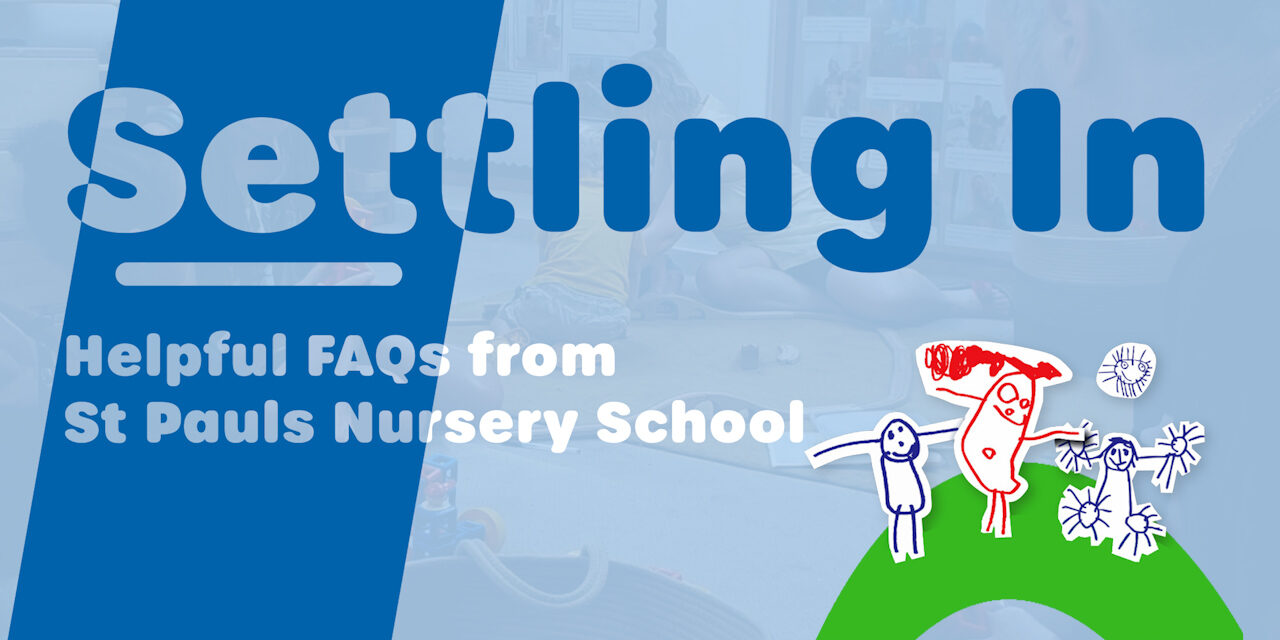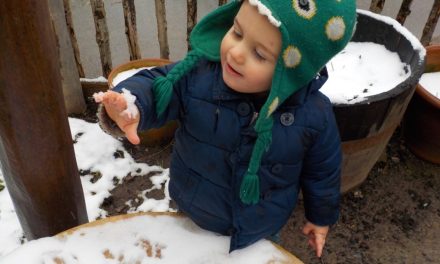We’re delighted to share our latest resource for families – a comprehensive Q&A webinar featuring our experienced team members Louise Scott (Lead Teacher & PSED Local Specialist Leader) and Dilly Baldwin (Lead Teacher & SENCO).
Starting nursery can feel overwhelming for both children and parents. That’s why we’ve created this expert guide to help you navigate the settling-in process with confidence. Our 27-minute webinar addresses the most common questions and concerns we hear from families, offering practical, evidence-based strategies rooted in attachment theory and child development research.
Whether you’re preparing for your child’s first nursery experience or working through a challenging transition, this video offers compassionate guidance from professionals who understand early years development inside and out.
Watch the full webinar above or on our YouTube channel, or explore the FAQs below.
FAQs
Why do I have to stay in the room with my child while they are settling in?
Because your child needs you nearby to feel safe as they find out about their new rooms and adults.
- Your child needs time to build new relationships with their key people & other adults in the room. They need you nearby to feel safe while they are do it.
- We know that if your child has time to make a trusting relationship with their key person while they settle in they will be happier and more successful at nursery.
- Separation from you will become easier if they have a strong and trusting relationship with their key adults at nursery
How can I help my child to settle into a Room?
Talk about nursery, practice the routines of the nursery day and be playful.
- Please practice the routine with your child: help them find their peg, key group area, their family photo.
- Talk about Nursery at home. Plan play for the day together, over breakfast, on your way to nursery. You can remind your child about their previous visit, “I noticed you were using the dinosaurs at nursery yesterday?”
- While on a settling visit with your child please remember to play alongside! Show them. Be gently encouraging, not forceful. Best way to get child engage – engage yourself! Find child’s favourite things, notice gently together.
Why do I have to say goodbye to my child? If they are having fun, why can’t I sneak out so as not to disturb or upset them?
Children need to trust you, to know that you will follow through on what you say.
- Be clear and consistent; as you come to nursery remind your child that you will be leaving them in the room AND that you will be coming back. You may need to tell them how long you are leaving them for. Please follow through with this.
- We ask you to ALWAYS tell your child that you are leaving, say goodbye, and tell them when you will be back.
- Your keyperson will help you separate from your child in a way that is appropriate for them.
- We will always come and tell you/phone you if your child is not settling and needs you.
- You may need to leave the room for very short periods of time while your child is learning that you will come back.
How should I say goodbye?
Be calm, clear and consistent. Acknowledge feelings but follow through with the plan.
- Tell your child when you will be leaving, for how long AND that you will be coming back.
- Try not to negotiate with your child. Once you have talked through the plan together stick to it.
- Acknowledge your child’s feelings but be clear about sticking to the plan, “I can see you don’t want me to go, you are feeling worried and sad. But do you remember our plan … I will leave the room now, I will wait on the sofa for 5 minutes, and then I will come back.”
- Try to avoid bribes – again it might work in the short term, but it is far more helpful to be alongside them in this important life learning.
Why does it take so long to settle children?
Investing time early on means that children are more successful at separating from you later.
- Some children take longer than others and need more time to learn that you will come back.
- Your key person has lots of children to settle. To enable all children high quality settling experiences, your child might not start nursery fully until later than you’d expected.
- Remember – anyone close to the child can be the ‘primary attachment figure’ who helps them to settle. If you are unable to attend all settling sessions, its fine to send a family member or friend who is well known to the child along in your place (provided they are over 18!)
What will happen if my child is really distressed/doesn’t settle?
Separation distress is a normal, healthy part of child development. We will work with you to find settling strategies that meet your child’s needs.
- We recognise how hard settling can be for YOU, as well as your child. Our teams are very experienced in settling children and supporting children in distress. Please know that there is no judgement, no shame, in your child experiencing separation distress.
- We will work with you to adapt to meet your child’s need. We will always call you if your child is not settled. You might need to come back. We will not leave your child to be distressed for long.
- We will acknowledge and validate your child’s feelings, “I can see that you are feelings really sad about saying goodbye to daddy. I feel sad when I say goodbye to my family too.”
- We may offer specific resources and visuals/pictures to support their understanding of the separation process.
What do I do if my child is really angry and refusing to come to Nursery?
Acknowledge big feelings as well as clearly explaining that nursery school is the right place for them to learn and explore.
- See our information on Emotion Coaching for supporting distress in every situation.
- Have a clear and consistent routine for nursery days. Drawing out the day or using pictures (ask your key person for some routine visuals) is very helpful. If they understand what is happening it will help alleviate stress and anxiety.
- Avoid negotiations. Offer closed choices; instead of ‘Can you put your shoes on now’, say, ‘We’re going to put your shoes on now. Will you wear your blue shoes or black ones?’
- ALLOW TIME. Everything is harder in a rush. If you are able to – ensure children have enough time to complete some jobs themselves! It will help them feel that they have some control over the situation and are not feeling ‘done to’, which is where conflict and resistance often arises.
- Always end with repair, ensuring your child knows how much you love them and how much you’re looking forward to seeing when you come back.
- Transitional objects: For some children having something from home (a transitional object) can be very important in providing a connection between home and nursery school and can relieve distress. If this is something you think might support your child, think carefully about what to bring. Something that is an appropriate size, that can be put in their bag or ‘special box’ to keep safe or something that is not too special! Don’t bring them in with their precious sleeping toy or blanket if they don’t have or won’t tolerate a replacement.
- We all have tricky mornings! Please share with your child’s key person, to help us meet your child where they’re at that day. There are ways to do this really respectfully in front of your child – ie. ‘We’ve had a tricky morning.’
Why has my child become upset at separations since moving rooms?
The building and setting may be the same but your child is re-setting; learning about new spaces, new adults new routines.
- Your child is missing their previous key-person/room/friends/routines/resources. At the same time, they are trying to navigate NEW spaces, adults, routines, expectations.
- Their brains are working very hard and this means they are less resilient, less tolerant and may experience distress more quickly.
- You might notice your child feeling more tired and hungry, ‘regressing’ – eg with toileting/sleeping and with managing their emotions.
- Keep talking to your key person about what you have noticed or things your child is finding hard. We will work with you to support them through this change.









